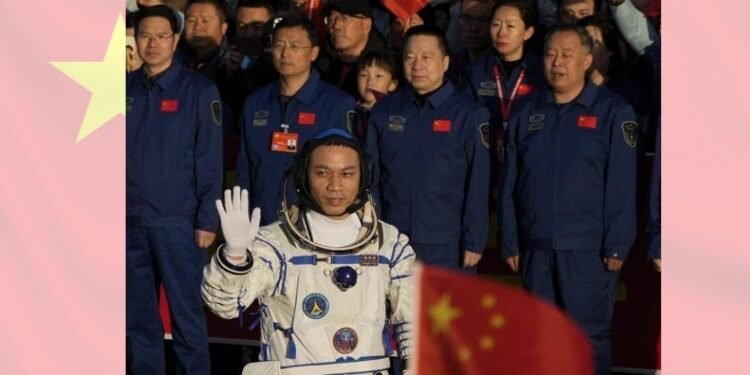China has successfully launched the Shenzhou-19 mission, carrying a three-person crew, including the country’s first female space engineer. The crew will spend six months at the country’s homegrown space station, conducting experiments and spacewalks as part of China’s preparations for a manned Moon mission by 2030.
The launch has been declared a major success, marking one of 100 planned missions this year as China strives to surpass the United States in space exploration. Crowds gathered at the Jiuquan Satellite Launch Center in Gansu province to cheer on the astronauts and wave national flags during the liftoff.
Leading the mission is veteran astronaut Cai Xuzhe, joined by two younger astronauts: Wang Haoze, China’s first female space engineer, and Song Lingdong, who had dreamed of space travel since his childhood. This mission symbolizes a new generation of Chinese astronauts and reflects the country’s growing investment in space technology.
In recent years, China has achieved several breakthroughs, including retrieving samples from the Moon’s far side and landing the Zhurong rover on Mars. The country also plans to launch a constellation of 14,000 satellites to compete with SpaceX’s Starlink network.
Despite these accomplishments, the rapid expansion of China’s space program has raised concerns in the United States, where it is perceived as a potential military threat. However, Chinese officials emphasize that their space program is committed to peaceful exploration and international collaboration.
This summary is based on reporting by Laura Bicker for the BBC. For the full article visit here: https://www.bbc.com/news/articles/c5yp47prg7jo



 Pakistan Rupee Exchange Rate
Pakistan Rupee Exchange Rate





